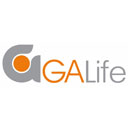A
Accident
an unexpected event or circumstance occurring without deliberate intent
Actual Cash Value
repayment value for indemnification due to loss or damage of property – in most cases it is the replacement cost minus depreciation
Actuary
a professional who analyses probabilities of risk and risk management including calculation of premiums, dividends and other applicable insurance industry standards
Admission
hospital inpatient care for any medical condition
Advance Premiums
occur when a policy has been processed, and the premium has been paid prior to the effective date
Adverse Selection
the social phenomenon whereby persons with a higher than average probability of loss seek greater insurance coverage than those with less risk
Agent
n individual who sells, services, or negotiates insurance policies either on behalf of an insurance company or independently
Aggregate
the maximum amount or total amount of coverage payable for a single loss, or multiple losses, during a policy period, or on a single project
All-Risks Insurance Policy
also known as open peril, this type of policy covers a broad range of losses. The policy covers all risks not explicitly excluded in the policy contract
Annuitant
the beneficiary of an annuity payment
Annuity
a contract providing income for a specified period of time, or duration of life for a person or persons
Arbitration
a binding dispute resolution tactic whereby a conciliator with no interest in the outcome intercedes
Back to topB
Blanket coverage
coverage for property and liability that extends to more than one location, class of property or employee
Bodily Injury
physical injury including sickness or disease to a person
Boiler & Machinery or Equipment Breakdown & Machinery
coverage for the failure of boilers, machinery and other electrical equipment. Benefits include (i) property of the insured, which has been directly damaged by the accident; (ii) costs of temporary repairs and expediting expenses; and (iii) liability for damage to the property of others (third parties)
Broker
a company or individual who receives commissions from the sale and service of insurance policies. These companies or individuals work on behalf of the customer and are not restricted to selling policies for a specific company but commissions are paid by the company with which the sale was made
Burglary and Theft
coverage for property taken or destroyed by breaking into and entering the insured’s premises, burglary or theft
Business Interruption
loss of income as a result of property damage to a business facility
Back to topC
Claim
a request made by the insured to the insurer for remittance of payment due to loss incurred and covered under the policy agreement
Claims-made Form
A type of liability insurance form that only pays if the both event that causes (triggers)the claim and the actual claim are submitted to the insurance company during the policy term
Commission
a percentage of premium paid to agents and or brokers by insurance companies for the sale of policies
Comprehensive General Liability (CGL)
coverage of all business liabilities unless specifically excluded in the policy contract
Co-pay
a cost sharing mechanism in group insurance plans where the insured pays a specified amount of incurred medical expenses and the insurer pays the remainder
Back to topD
Declarations
policy statements regarding the applicant and property covered such as demographic and occupational information, property specifications, use of property, etc.
Deductible
Portion of the insured loss paid by the policy holder
Directors & Officers Liability
liability coverage protecting directors or officers of a corporation from liability arising out of the performance of their professional duties on behalf of the corporation
Back to topE
Effective Date
date at which an insurance policy goes into force.
Employers Liability
employers’ liability coverage for the legal liability of employers arising out of injuries to employees. This code should be used when coverage is issued as an endorsement, or as part of a statutory workers’ compensation policy.
Endorsement
an amendment to a policy adjusting the coverages and taking precedence over the general contract.
Environmental Impairment Liability (EIL)
coverage for negligence or omission resulting in pollution or environmental contamination
Environmental Pollution Liability
liability coverage of an insured to persons who have incurred bodily injury or property damage from acids, fumes, smoke, toxic chemicals, waste materials or other pollutants
Back to topF
Facultative Reinsurance
reinsurance for a specific policy for which terms can be negotiated by the original insurer and reinsurer
Fidelity
a bond or policy covering an employer’s loss resulting from an employee’s dishonest act (e.g., loss of cash, securities, valuables, etc.)
Financial Guaranty
a surety bond, insurance policy, or an indemnity contract (when issued by an insurer), or similar guaranty types under which loss is payable upon proof of occurrence of financial loss to an insured claimant, obligee or indemnitee as a result of failure to perform a financial obligation or any other permissible product that is defined as or determined to be financial guaranty insurance
Fire
coverage protecting the insured against the loss to real or personal property from damage caused by the peril of fire or lightning, including business interruption, loss of rents, etc.
Fronting
an arrangement in which a primary insurer acts as the insurer of record by issuing a policy, but then passes the entire risk to a reinsurer in exchange for a commission. Often, the fronting insurer is licensed to do business in a state or country where the risk is located, but the reinsurer is not
Back to topH
Hard Market
a market characterized by high demand and low supply leading to higher prices
Hazard
circumstance which tends to increase the probability or severity of a loss.
Hold-Harmless Agreement
A risk transfer mechanism whereby one party assumes the liability of another party by contract
Homeowners Insurance
a package policy combining real and personal property coverage with personal liability coverage. Coverage applicable to the dwelling, appurtenant structures, unscheduled personal property and additional living expense are typical.
Hull Insurance
coverage for damage to a marine vessel or aircraft and affixed items
Back to topI
Insurable Interest
A right or relationship in regard to the subject matter of the insurance contract such that the insured can suffer a financial loss from damage, loss or destruction to it.
Insurance
an economic device transferring risk from an individual to a company and reducing the uncertainty of risk via pooling.
Insured
the party(ies) covered by an insurance policy.
Insurer
an insurer or reinsurer authorized to offer insurance services
Back to topL
Lapse
termination of a policy due to failure to pay the required renewal premium
Loss Adjuster
a person who investigates claims and recommends settlement options based on estimates of damage and insurance policies held
Loss Ratio
the percentage of incurred losses to earned premiums
Back to topM
Market Value
fair value or the price that could be derived from current sale of an asset.
Moral Hazard
personality characteristics of the insured that increase probability of losses. For example, not taking proper care to protect insured property because the insured knows the insurance company will replace it if it is damaged or stolen
Back to topN
Named Peril Coverage
insurance for losses explicitly defined in the policy contract
Back to topP
Package Policy
two or more distinct policies combined into a single contract.
Peril
the cause of loss
Personal Accident Insurance
insurance for unforeseen bodily injury
Policy
a written contract ratifying the legality of an insurance agreement
Policy Period
time period during which insurance coverage is in effect
Premium
Money charged for the insurance coverage reflecting the risk posed to the insurance pool
Principle of Indemnity
a general legal principle related to insurance that holds that the individual recovering under an insurance policy should be restored to the approximate financial position he or she was in prior to the loss
Product Liability
insurance coverage protecting the manufacturer, distributor, seller, or lessor of a product against legal liability resulting from a defective condition causing personal injury, or damage, to any individual or entity, associated with the use of the product
Professional Errors and Omissions Liability Insurance
coverage available to pay for liability arising out of the performance of professional or business-related duties, with coverage being tailored to the needs of the specific profession. Examples include accountants, architects, engineers, insurance agents and brokers, lawyers, real estate agents, stockbrokers
Property Insurance
coverage protecting the insured against loss or damage to real or personal property from a variety of perils, including but not limited to fire, lightening, business interruption, loss of rents, glass breakage, tornado, windstorm, hail, water damage, explosion, riot, civil commotion, rain, or damage from aircraft or vehicles
Provisions
contingencies outlined in an insurance policy
Proximate Cause
the dominant cause of loss leading to an insurance claim
Back to topR
Risk Based Capital (RBC) Ratio
ratio used to identify insurance companies that are poorly capitalized. Calculated by dividing the company’s capital by the minimum amount of capital regulatory authorities have deemed necessary to support the insurance operations
Reinsurance
a transaction between a primary insurer and another licensed (re) insurer where the reinsurer agrees to cover all or part of the losses and/or loss adjustment expenses of the primary insurer. The assumption is in exchange for a premium. Indemnification is on a proportional or non-proportional basis
Reinsurer
company assuming reinsurance risk
Reserve
A portion of the premium retained to pay future claims
Risk
Uncertainty concerning the possibility of loss by a peril for which insurance is pursued
Back to topS
Salvage
value recoverable after a loss
Soft Market
a buyer’s market characterized by abundant supply of insurance driving premiums down
Standard Risk
a risk which, according to a company’s underwriting standards, is considered a normal risk and insurable at standard rates. High or low risk candidates may qualify for extra or discounted rates based on their deviation from the standard
Subrogation
situation where an insurer, on behalf of the insured, has a legal right to bring a liability suit against a third party who caused losses to the insured. Insurer maintains the right to seek reimbursement for losses incurred by insurer at the fault of a third party
Back to topU
Underwriter
person who identifies, examines and classifies the degree of risk represented by a proposed insured in order to determine whether or not coverage should be provided and, if so, at what terms
Underwriting
the process by which an insurance company examines risk and determines whether the insurer will accept the risk or not, classifies those accepted and determines the appropriate rate for coverage provided
Back to topW
Workers’ Compensation
insurance that covers an employer’s liability for injuries, disability or death to persons in their employment, without regard to fault, as prescribed by statutory labor laws and other statutes
Back to top


